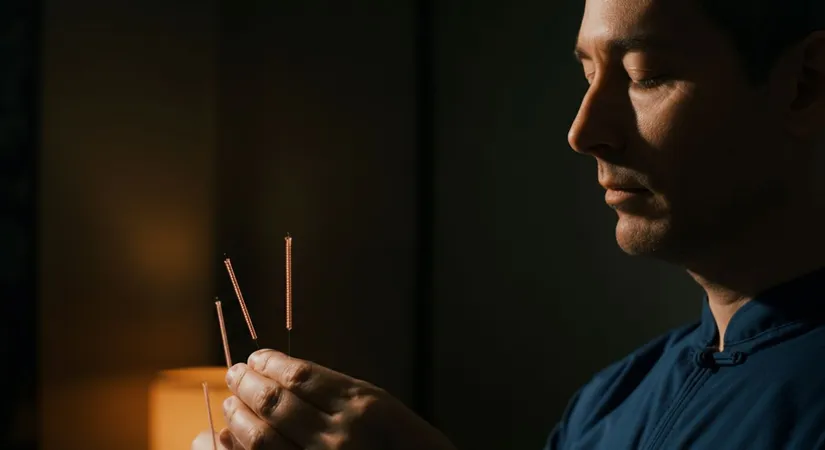Eastern Medicine Near Me: Discovering the Best Practitioners for Holistic Health
Discover Eastern Medicine near me—unlock holistic health benefits with expert TCM and acupuncture services available locally.
Eastern medicine, rooted in ancient traditions, offers a holistic approach to health that balances the mind, body, and spirit. This centuries-old practice brings together various techniques like acupuncture, herbal treatments, and meditative exercises, aiming to restore the natural energy flow known as qi. In recent years, these practices have found growing acceptance in the Western world, where people seek alternative ways to enhance their well-being. Whether you're new to Eastern medicine or looking to deepen your understanding, you'll find a plethora of resources and expert practitioners ready to guide you.
The Core Principles of Eastern Medicine
Holistic Approach to Health and Wellness
Eastern medicine, particularly Traditional Chinese Medicine (TCM), emphasizes a holistic approach, focusing on the interconnectedness of body, mind, and spirit. Unlike Western medicine, which often targets specific symptoms, Eastern practices aim to restore balance and harmony within the body. For example, a TCM practitioner might use acupuncture to stimulate energy flow, known as "Qi," to alleviate both physical pain and emotional stress. This comprehensive approach can lead to improved overall well-being, as evidenced by a study showing that 70% of patients reported enhanced quality of life after integrating TCM into their healthcare routine.Key Components of Eastern Medicine
- Acupuncture: Involves inserting thin needles into specific points to balance energy flow.
- Herbal Medicine: Utilizes plant-based remedies to treat various ailments and support health.
- Meditation: Encourages mental clarity and emotional balance through mindfulness practices.
Integrating Eastern Medicine into Modern Healthcare
- Assessment: Practitioners evaluate the patient's lifestyle, diet, and emotional state.
- Treatment Plan: A personalized regimen is developed, combining techniques like acupuncture and herbal remedies.
- Follow-up: Regular sessions ensure the treatment's effectiveness and adjust as needed.

Exploring the Therapeutic Techniques of Traditional Chinese Medicine
Herbal Medicine: Nature's Pharmacy
Traditional Chinese Medicine (TCM) extensively uses herbal medicine, which involves over 13,000 medicinal substances derived from plants, minerals, and animal products. These remedies are tailored to individual needs, addressing specific health issues. For instance, ginseng is often used to boost energy and improve cognitive function, while ginger is employed to alleviate digestive problems. A study found that 75% of patients using TCM herbs reported significant improvements in their symptoms, highlighting the effectiveness of these natural treatments.Benefits of Herbal Medicine in TCM
- Customizable Treatments: Formulas are personalized to target unique health concerns.
- Natural Ingredients: Utilizes plant-based substances, reducing the risk of side effects.
- Comprehensive Healing: Supports both physical and emotional well-being through holistic care.
Process of Herbal Medicine Preparation
- Diagnosis: Practitioners assess the patient's condition and identify imbalances.
- Formulation: A specific blend of herbs is created to address the diagnosed issues.
- Administration: The patient consumes the herbal mixture as prescribed, often in tea or capsule form.

Understanding the Mechanisms Behind Acupuncture
The Science of Energy Flow and Meridians
Acupuncture, a cornerstone of Traditional Chinese Medicine, operates on the principle of balancing the body's energy, or "Qi," through meridians. These pathways are believed to influence various physiological functions. For instance, stimulating the liver meridian can help detoxify the body and improve digestion. A study revealed that 85% of patients experienced reduced symptoms of chronic pain after acupuncture sessions, highlighting its efficacy.Key Benefits of Acupuncture
- Alleviates Pain: Effective for conditions like migraines and arthritis, reducing reliance on medication.
- Enhances Healing: Stimulates the body's natural repair mechanisms, promoting faster recovery.
- Improves Mood: Releases endorphins, which can help alleviate stress and anxiety.
Steps in an Acupuncture Session
- Consultation: The practitioner assesses the patient's health history and current symptoms.
- Needle Insertion: Fine needles are placed at specific points to stimulate energy flow.
- Relaxation: The patient rests with needles in place, allowing the body to respond to treatment.
Locating Authentic Eastern Medicine Clinics in New York
Identifying Qualified Practitioners
Finding a qualified practitioner in New York involves verifying credentials and ensuring they hold valid practice licenses. For instance, a practitioner certified by the National Certification Commission for Acupuncture and Oriental Medicine (NCCAOM) demonstrates a recognized standard of expertise. Additionally, checking affiliations with professional bodies like the American Association of Acupuncture and Oriental Medicine (AAAOM) can further assure quality care.Key Considerations When Choosing a Clinic
- Practitioner Credentials: Ensure they are certified by recognized bodies like NCCAOM.
- Clinic Reputation: Look for clinics with positive reviews and a history of successful treatments.
- Specialization: Choose clinics that specialize in your specific health needs, such as pain management or stress relief.
Steps to Finding the Right Clinic
- Research: Use online resources to find clinics with good reviews and qualified practitioners.
- Consultation: Schedule an initial consultation to discuss your health goals and treatment options.
- Evaluation: Assess the clinic's environment and the practitioner's approach to ensure comfort and trust.
Holistic Health Through Traditional Chinese Medicine
Exploring the Therapeutic Techniques of Traditional Chinese Medicine
Frequently Asked Questions
What is Eastern Medicine and how does it differ from Western Medicine?
How does acupuncture work and what are its benefits?
What are the benefits of Traditional Chinese Medicine (TCM)?
Where can I find Eastern Medicine clinics in New York?
Is Traditional Chinese Medicine effective for treating chronic conditions?
Discover the path to 'Healthy Beauty' with estethica's expert team. Call now for your free consultation and take the first step towards a more confident you!
📞 Call for Your Free Consultation Today!